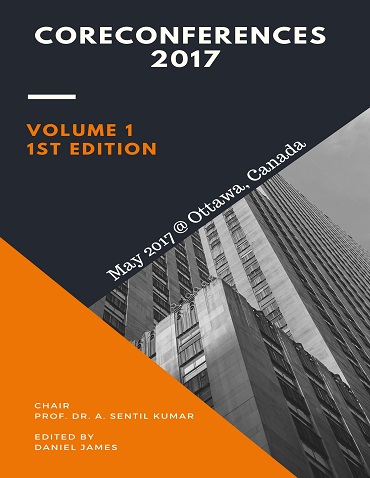- Publication Meta:Value
- Short Title:CC Batch B 2017
- Publisher:ASDF, India
- ISBN 13:978-81-933584-0-5
- ISBN 10:81-933584-0-6
- Language:English
- Type:Hard Bound - Printed Book
- Copyrights:CC Batch B Organizers/ DCRC, London, UK
- Editor-in-Chief:Dr A Senthilkumar
- Conference Dates:10 - 12, May 2017
- Venue Country:Saint Paul University, Ottawa, Canada
- Submitted Papers:335
- Acceptance Rate:8.15%
- Website:www.coreconferences.com
Welcome to ASDF Electronic Digital Library!
CoreConferences 2017
CoreConferences 2017
International Conference on Social Science and Public Affairs 2017
Paper 032
An Empirical Study of Human Resource Management Practices and Organizational Performance in Intergovernmental Organization
Yousif El-Ghalayini1
1School of Business, Australian College of Kuwait
Abstract
The literature on the relationship between human resources management (HRM) and organizational performance has focused on private sector organizations and there has been very limited research on international governmental organizations (IGOs). This article focuses on the relatively understudied international governmental organization. On the basis of a large organization-wide survey, this study examines the effects of HRM practices on worker attitudes by reporting the results of a staff survey and follow-up interviews conducted on a cross-section of one of the largest IGOs. The organization has a quasi-governmental role, delivering essential public services including education, healthcare, social services, and emergency aid. The empirical evidence has shown that the effects of specific HRM practices, such as training and development, outperform other practices, such as staffing and recruitment. The results also indicated that HRM practices have synergistic and complementary effects on each of the employee attitudes that exceed their individual effects. The paper concludes that although there are significant positive effects of some bundles of HRM practice and worker attitudinal outcomes, there are other factors that may positively or negatively moderates the effectiveness of these practices, raising thus the question of reverse causality.
Keywords
Author's Profile
Author profile can be generated and linked through our partners World Book of Researchers. To include your profile online Click Here. After it is approved, please email to edlib @ asdf.res.in to create a link with all the papers.
e-AID
CoreConferences.2017.032
Cite this Article as Follows
Yousif El-Ghalayini. An Empirical Study of Human Resource Management Practices and Organizational Performance in Intergovernmental Organization. International Conference on Social Science and Public Affairs (2017): 16. Print.
© 2010 - by EDLIB .
All Rights Reserved.

